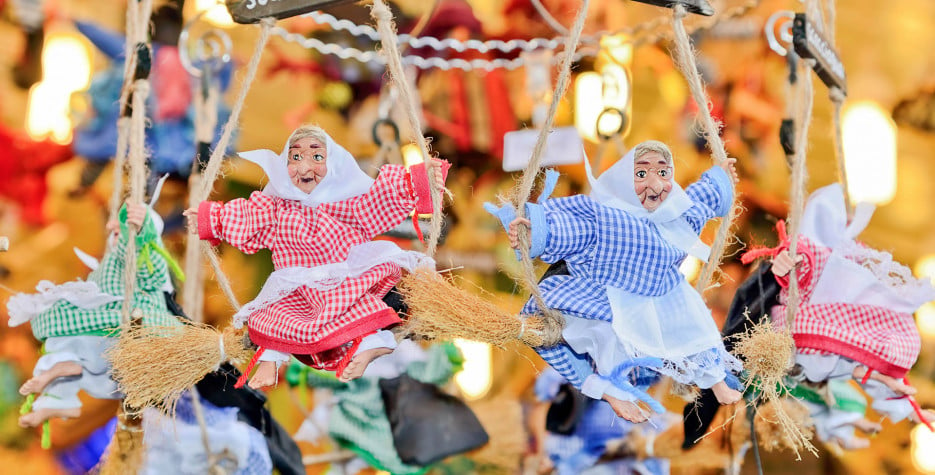Epiphany in Italy
On January 6th, Italians celebrate the Feast of the Epiphany with a national public holiday. Epiphany marks the end of the Christmas period and commemorates the presentation of the infant Jesus to the Magi or three wise men.
The celebration of the Epiphany began in the Eastern Church and included a celebration of Christ's birth. However, by the 4th century AD., the various calendar reforms had moved the birth of Christ to December 25th and the church in Rome began celebrating January 6th as Epiphany.
The tradition of La Befana
January 6th is also known as La Befana. In Italian folklore, Befana is an old soot-covered woman or witch who delivers presents to Italian children on the night before La Befana (Epiphany Eve).
The story goes that on their way to see the infant Jesus, the Magi stopped to ask Befana for directions and asked her to join them. She initially refused, but later had a change of heart and tried to find the manger. She was unable to find the baby Jesus and gave the gifts she had brought to other children. To this day, she travels on her broomstick every year on January 5th looking in vain for the manger and giving her presents to any Italian child who leaves out a shoe or hangs up a stocking on Epiphany Eve. This legend arose in the 13th century and for a long time La Befana was a tradition confined to Rome and the surrounding regions, but this festival has become popular across all of Italy in the last hundred years.
According to a study by the Coldiretti farmers association in 2019, 47% of Italian households hang stockings for Befana to fill with gifts for their children, including chocolate, candy, dried fruits, nuts, and home-made cookies.
It wouldn't be a proper Italian festival without an excuse to bake some yummy food and La Befana is no exception. Special treats on La Befana include sweet coal, small cookies called befanini and Befana cake - a cake with a large dried bean inside. Whoever gets the bean in their slice is king (or queen) for the day.
Epiphany Traditions in Italy
All this focus on La Befana doesn't mean that there aren't also traditional Epiphany events. For instance, there is the Cavalcade of the Magi in Florence, in which some 700 people decked out in Renaissance costumes ride on horseback through the historic city centre.
The Cavalcade of the Magi dates back to the 15th century when it was first organised by the Medici family which ruled Florence during the Renaissance, according to the city's website.
The Pope will lead a Mass in St Peter's Basilica at 10.00 am on Epiphany.
This the twelfth day of Christmas and the traditional Christmas holiday season in Italy lasts through Epiphany. All Schools and businesses will be closed, but most stores will remain open as the post-Christmas sales period that traditionally began on January 3rd in Italy is in full swing. Many people also take advantage of the Epiphany holiday to exchange gifts acquired during the winter sale season.
"This last chance to celebrate drives the value of gifts purchased during the year-end festivities to upwards of 5 billion euros (about 5.5 billion U.S. dollars)," Coldiretti wrote.


